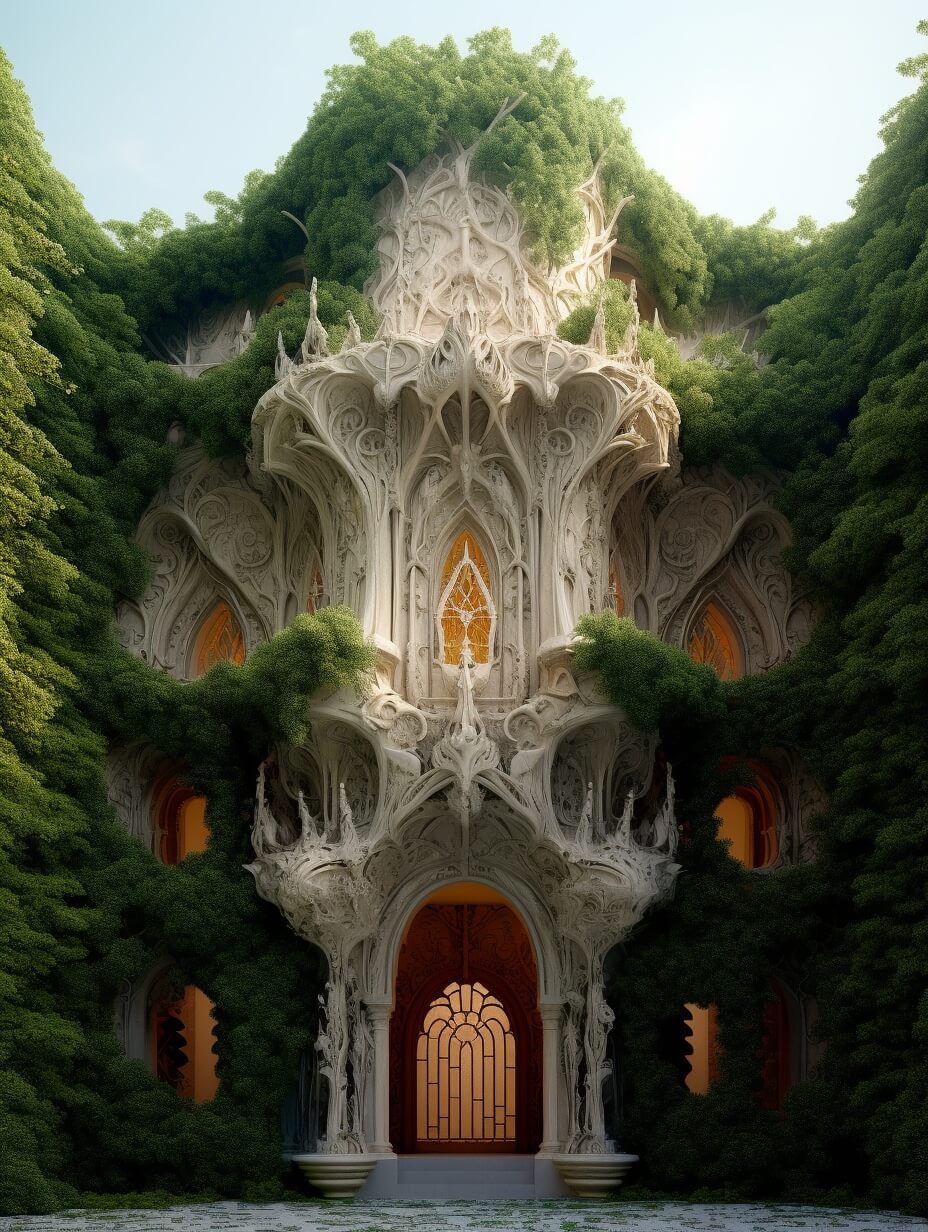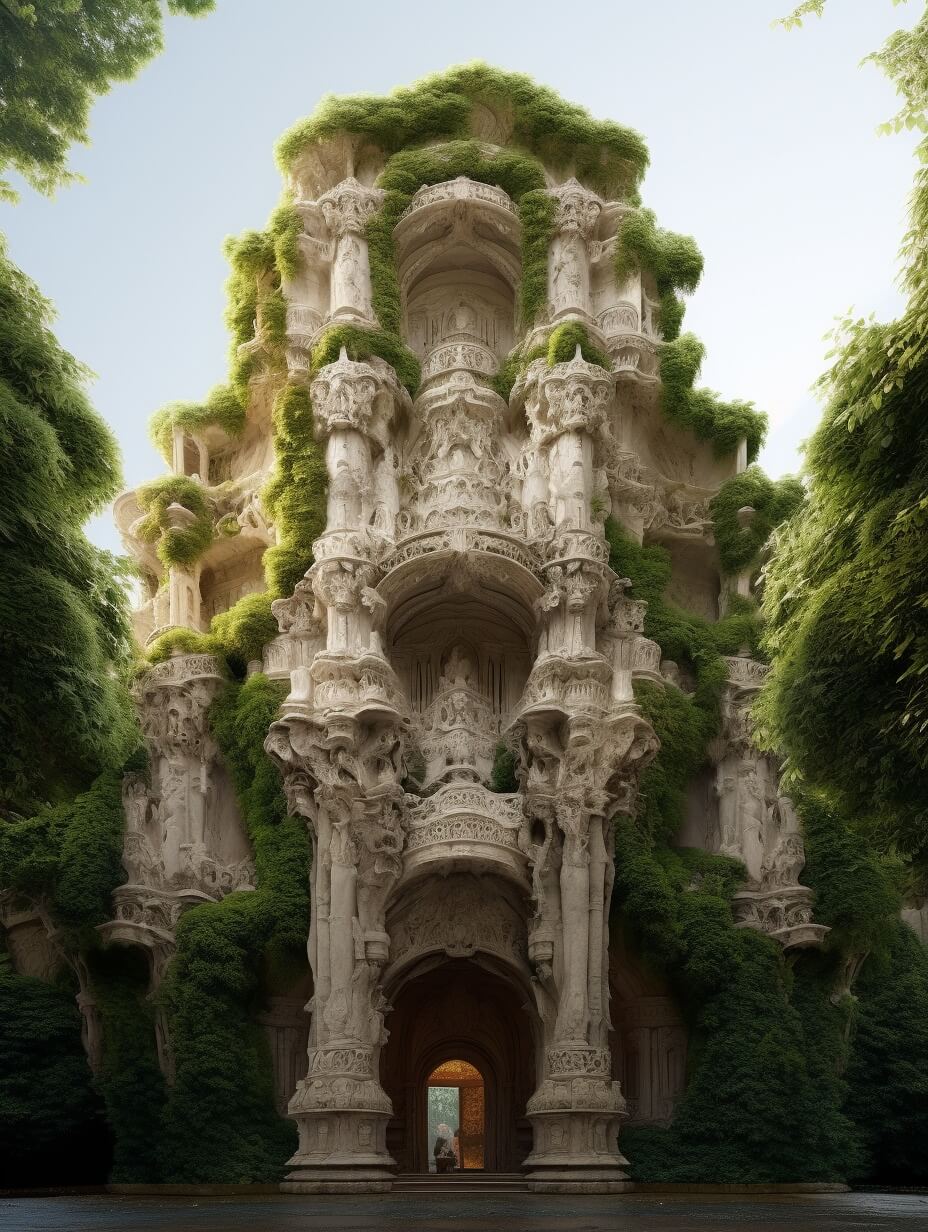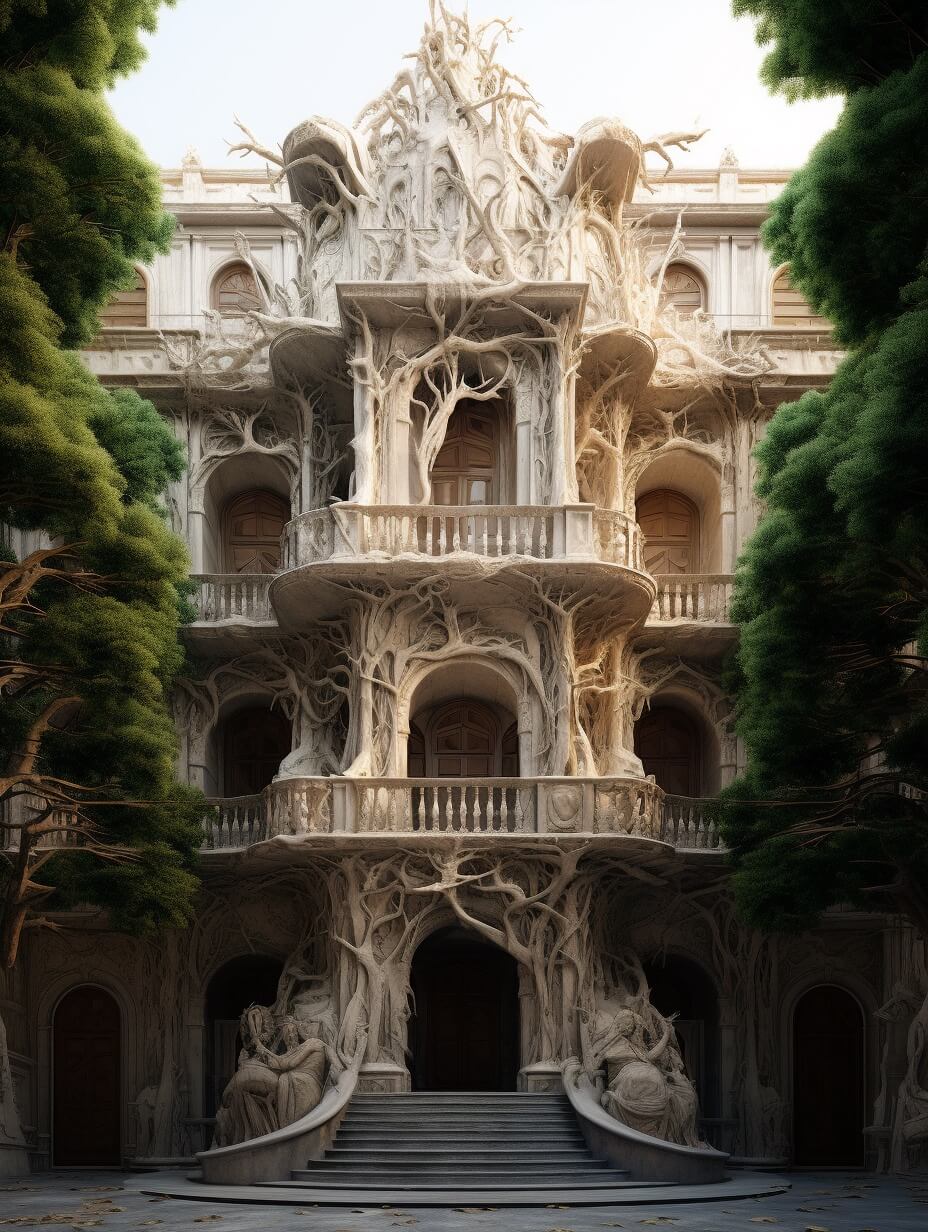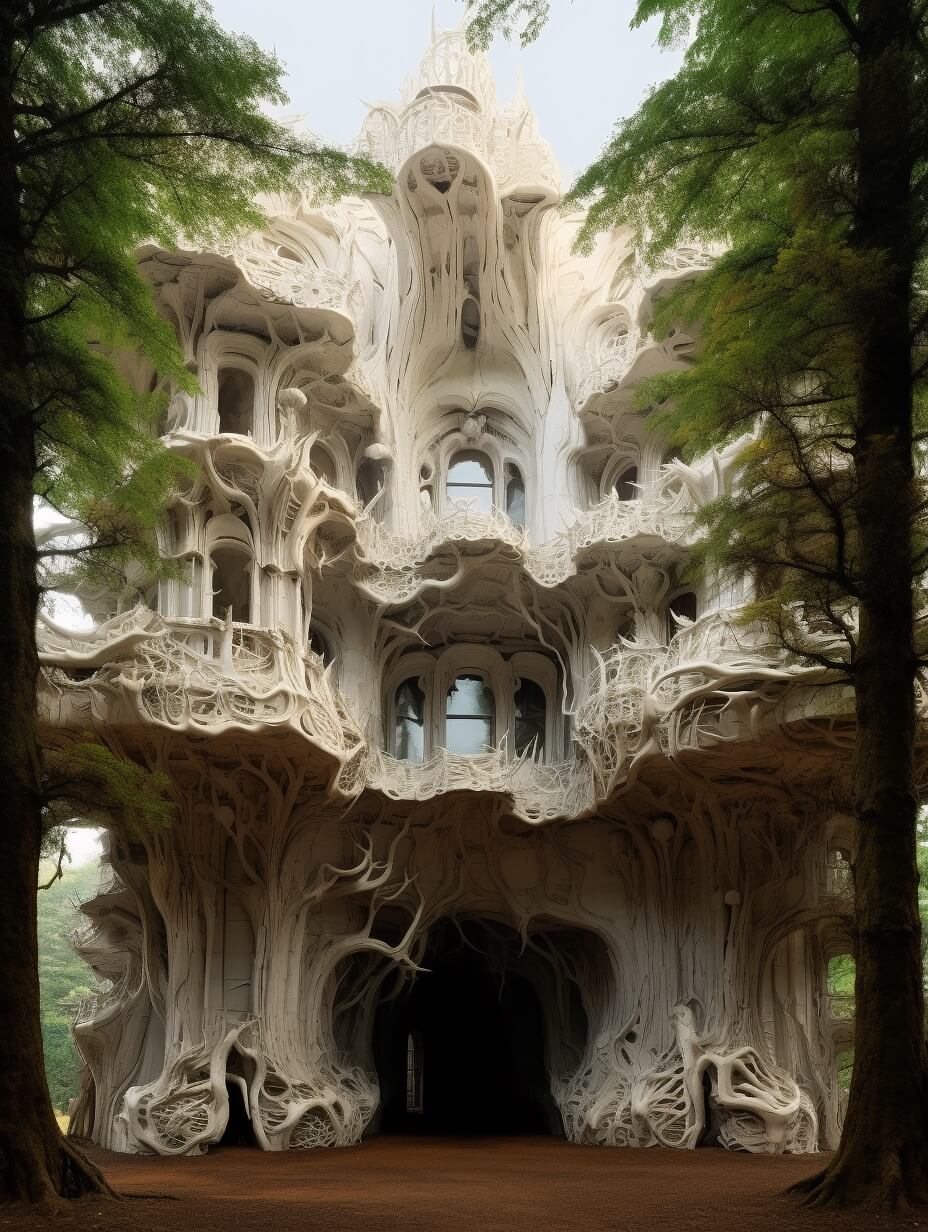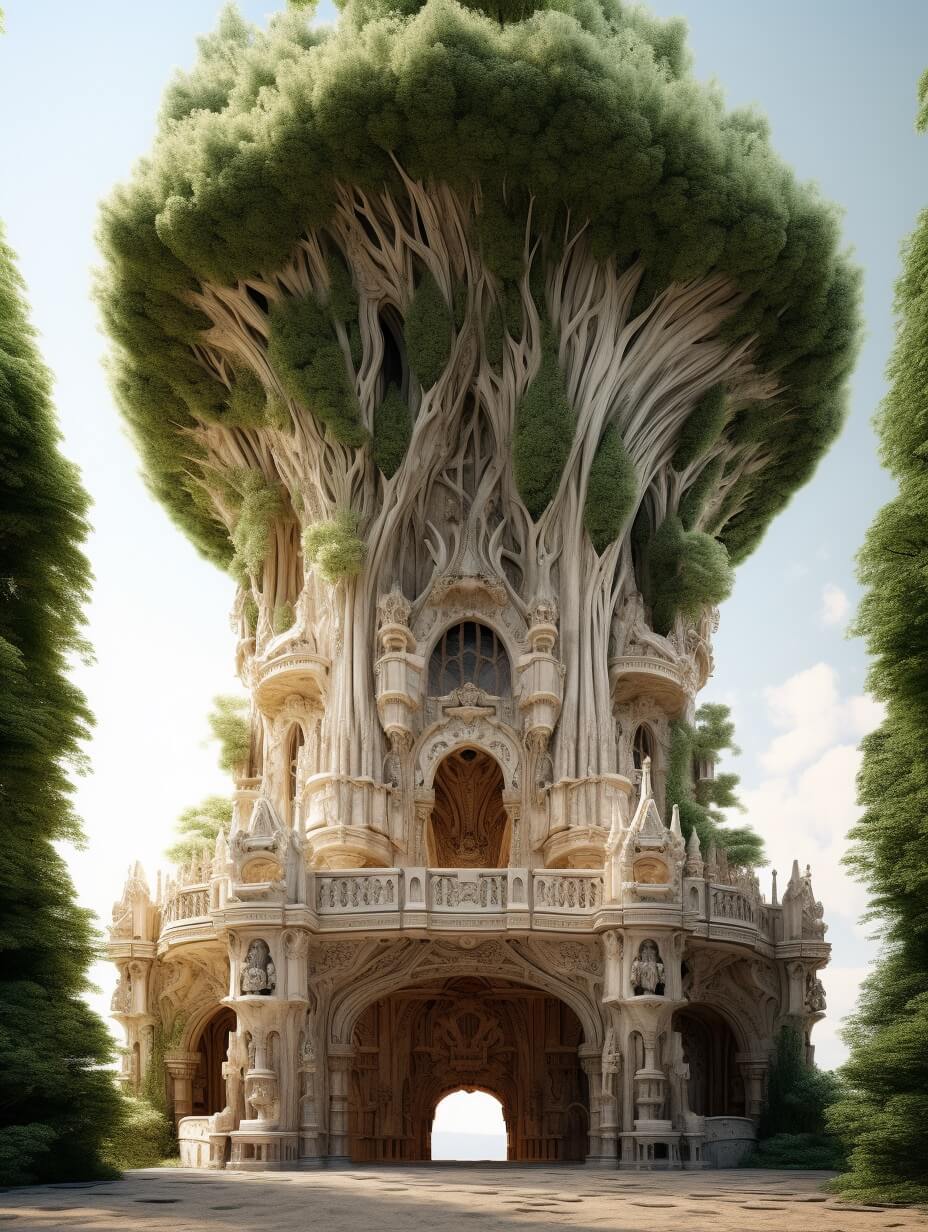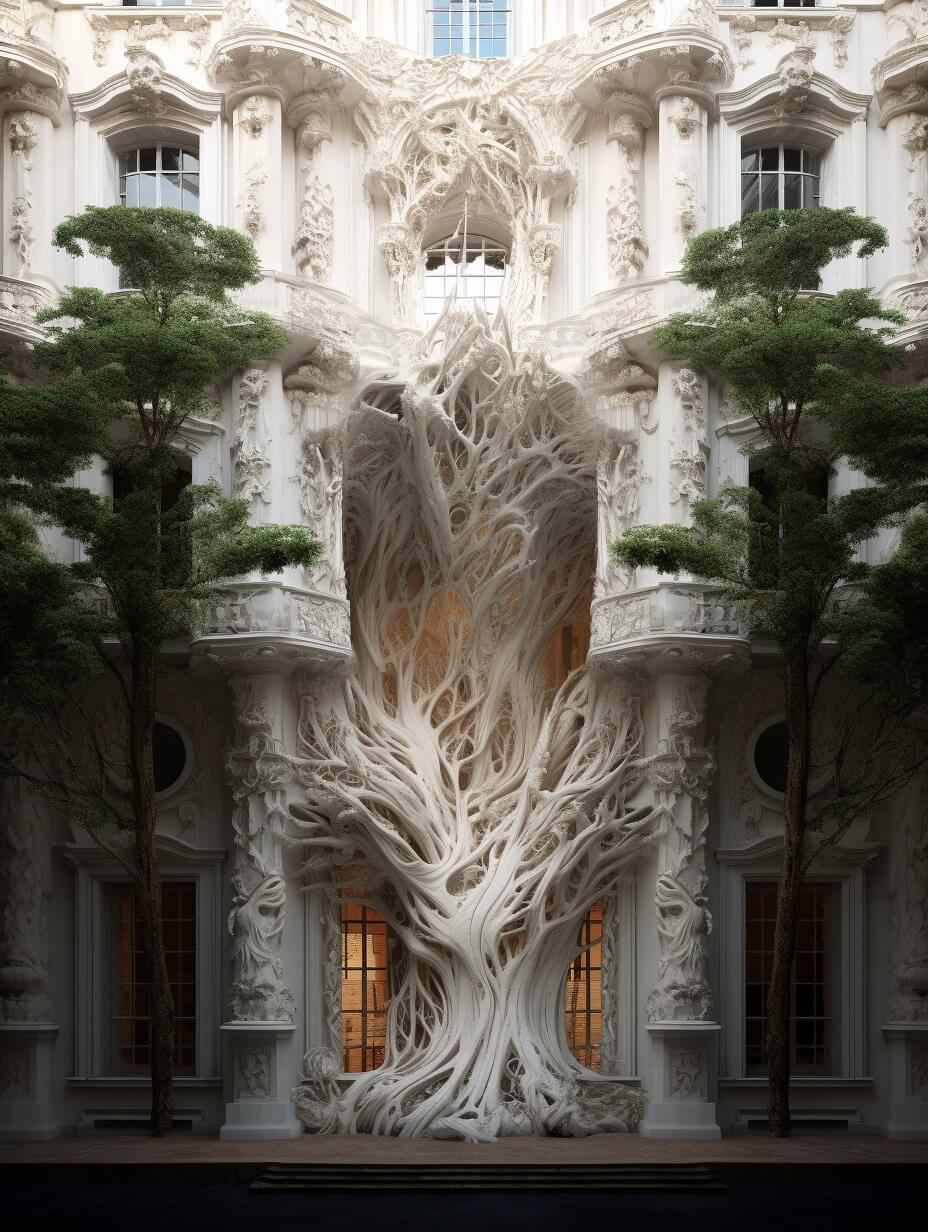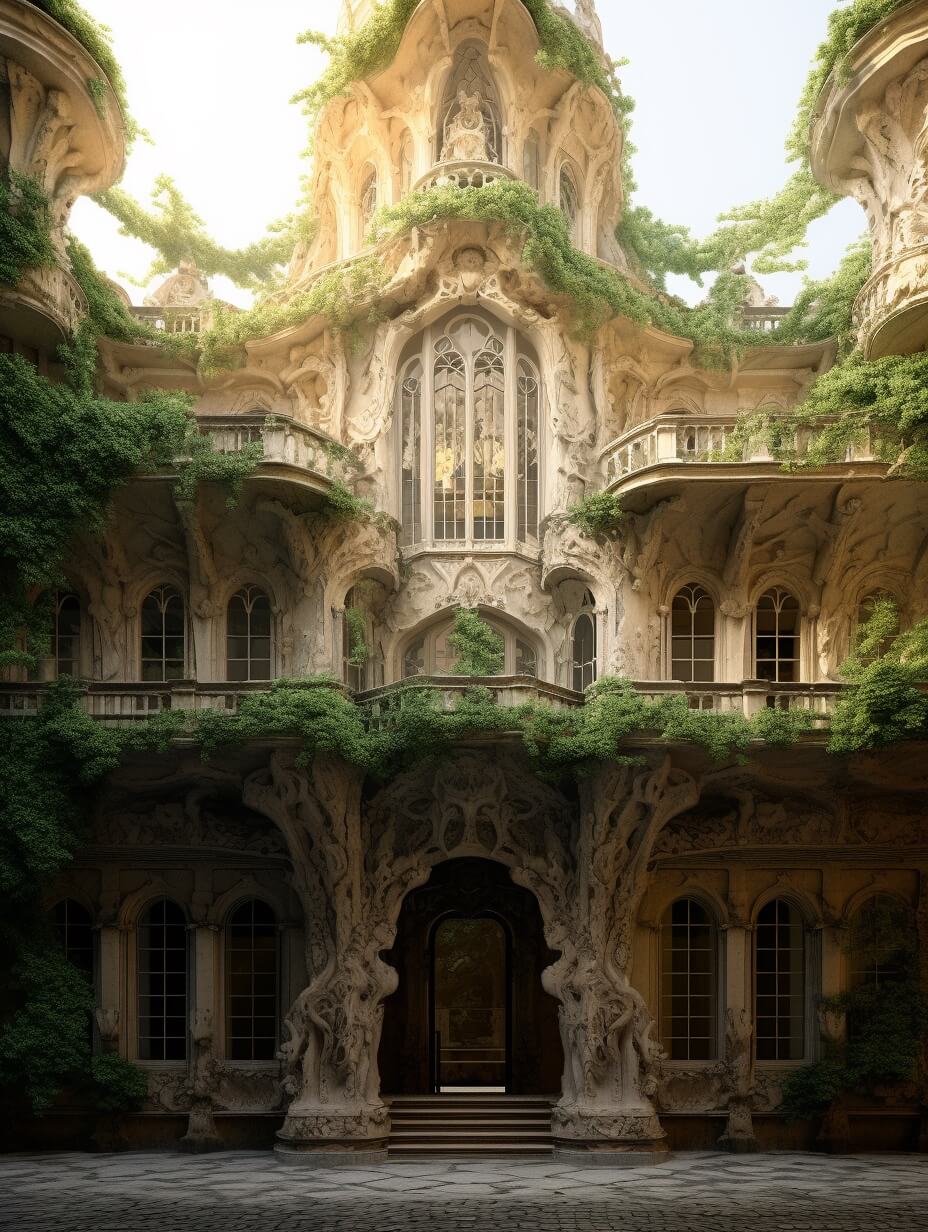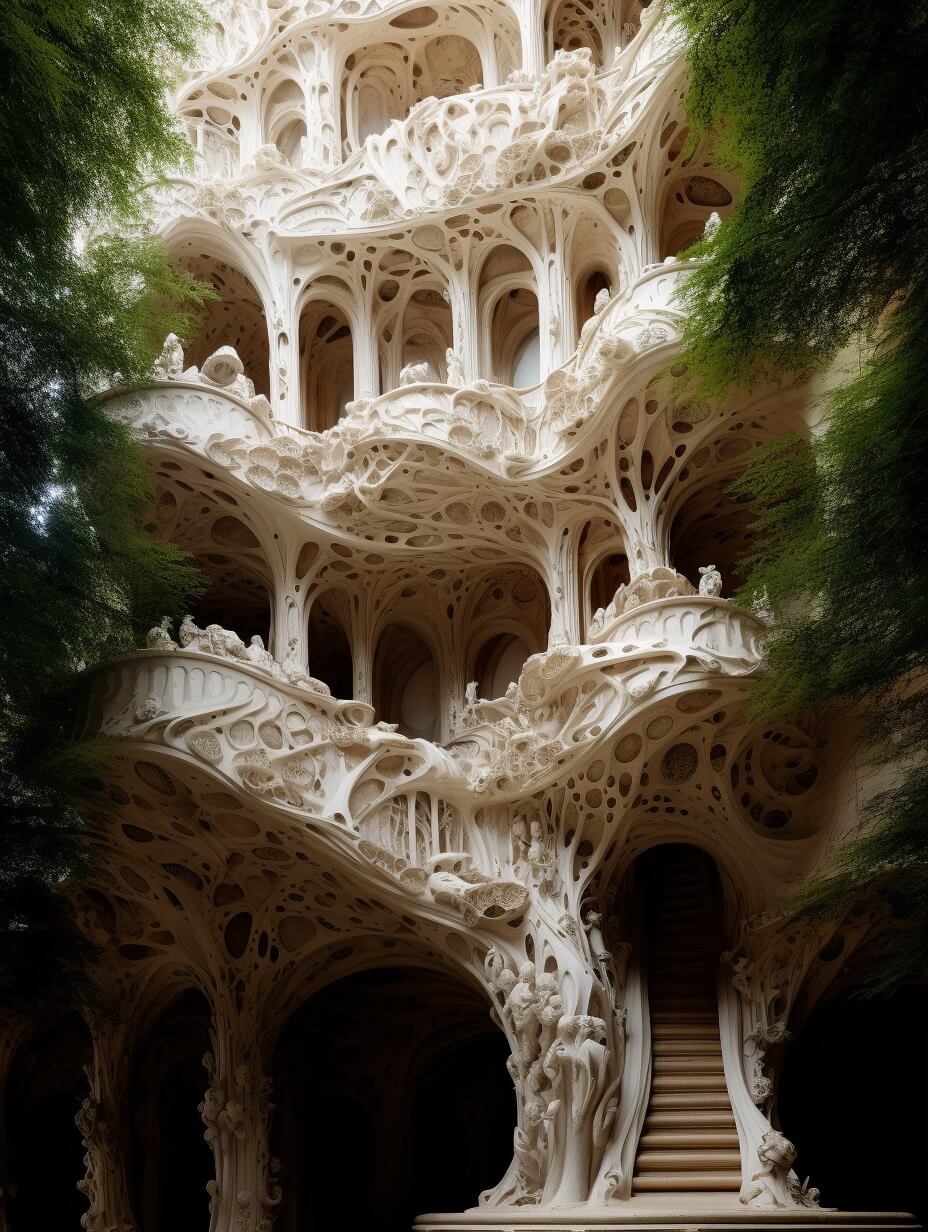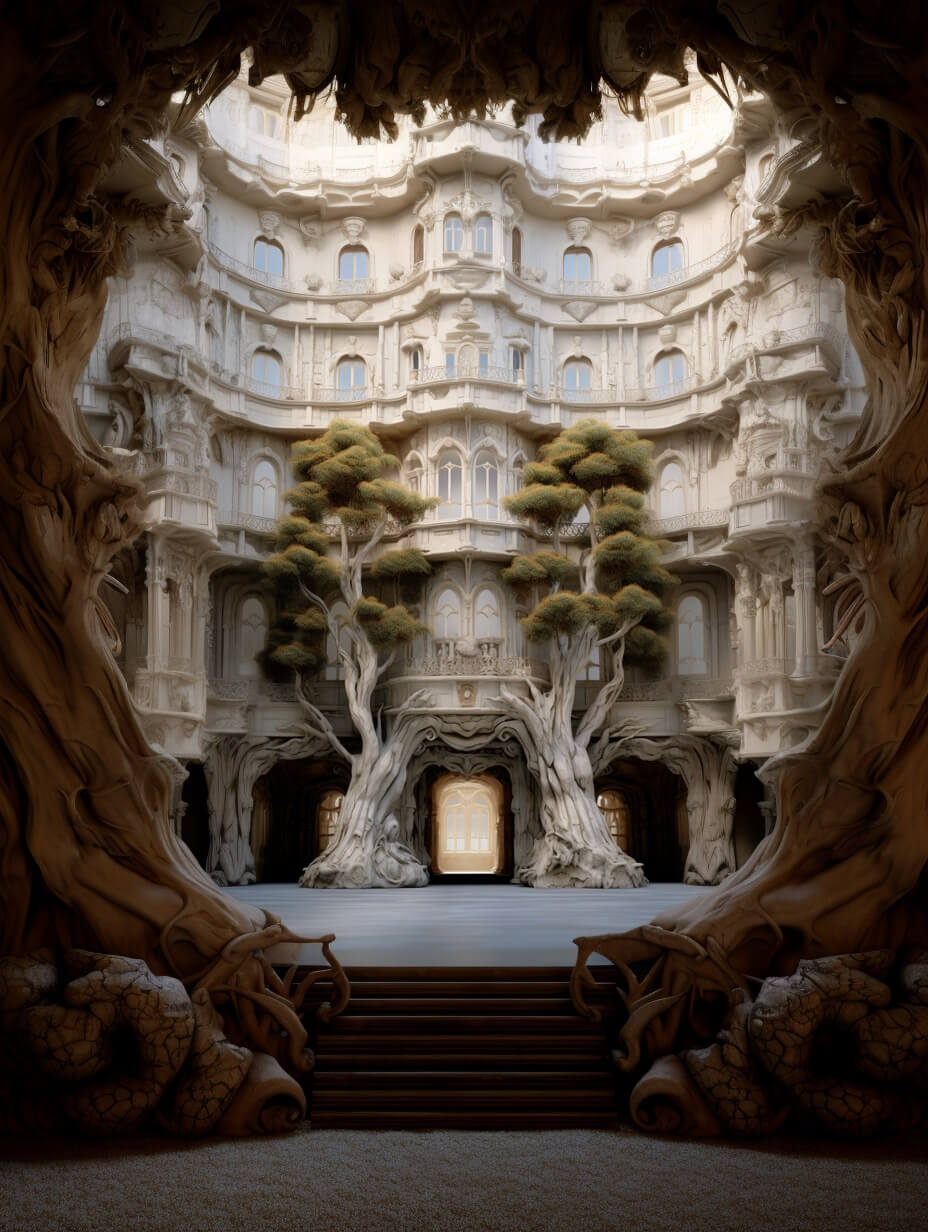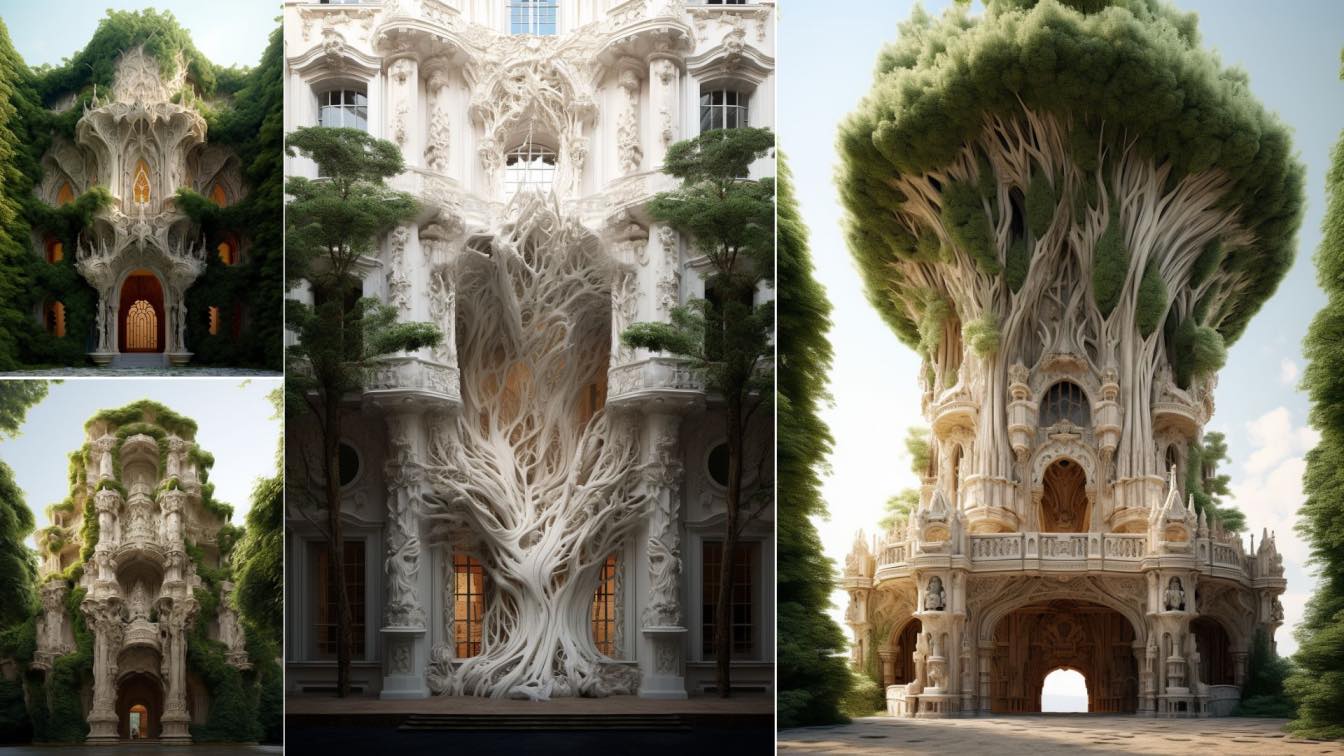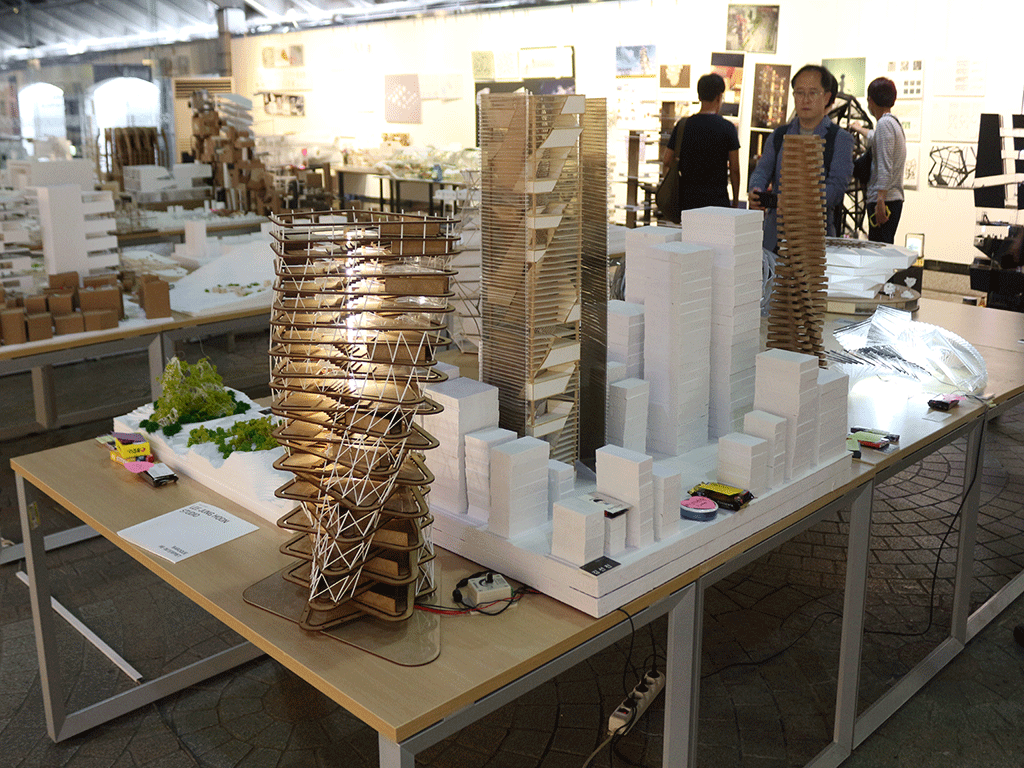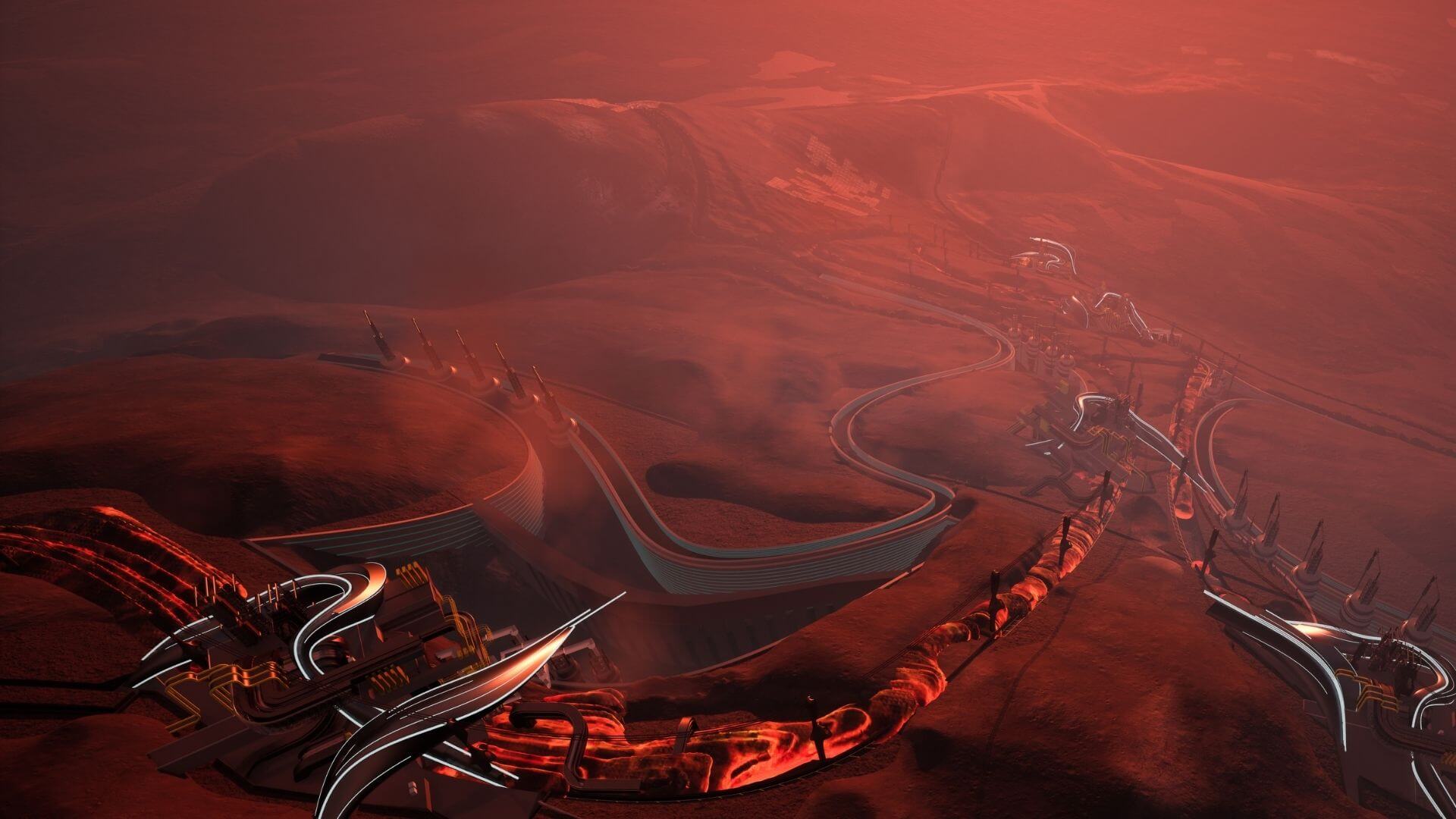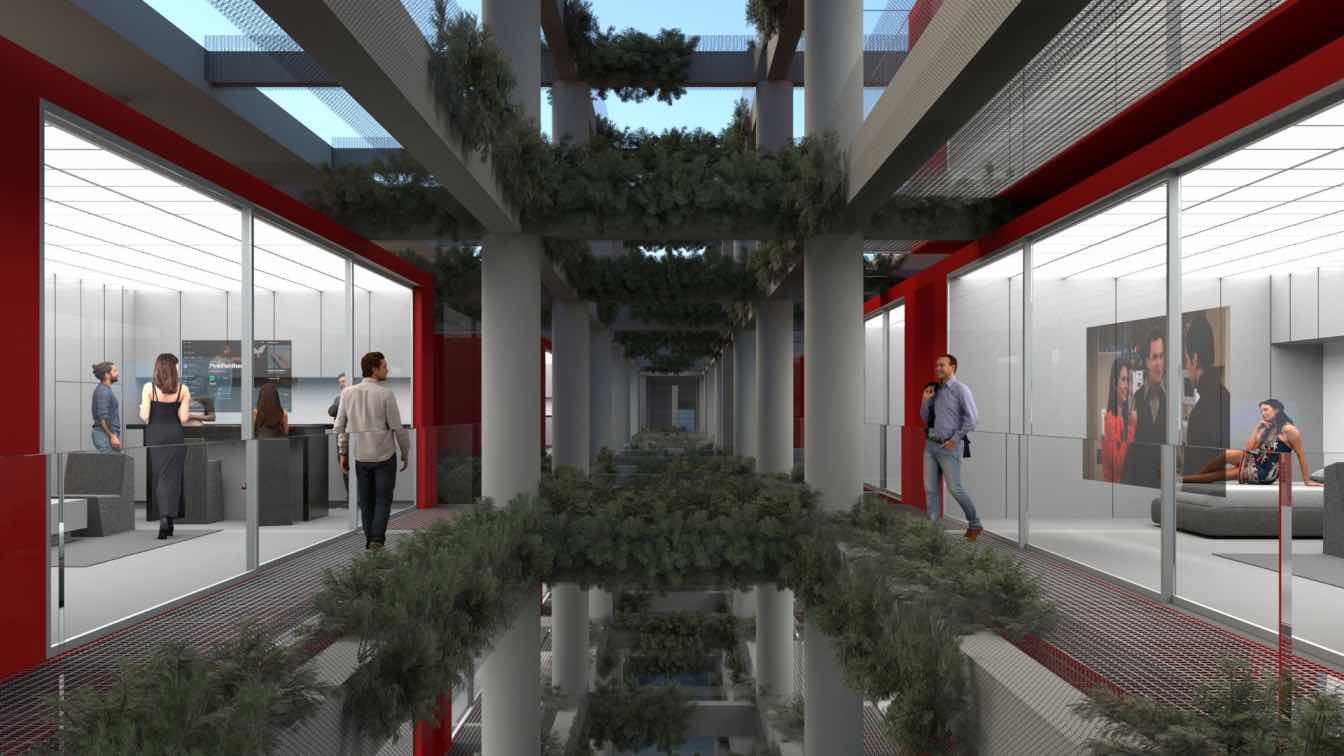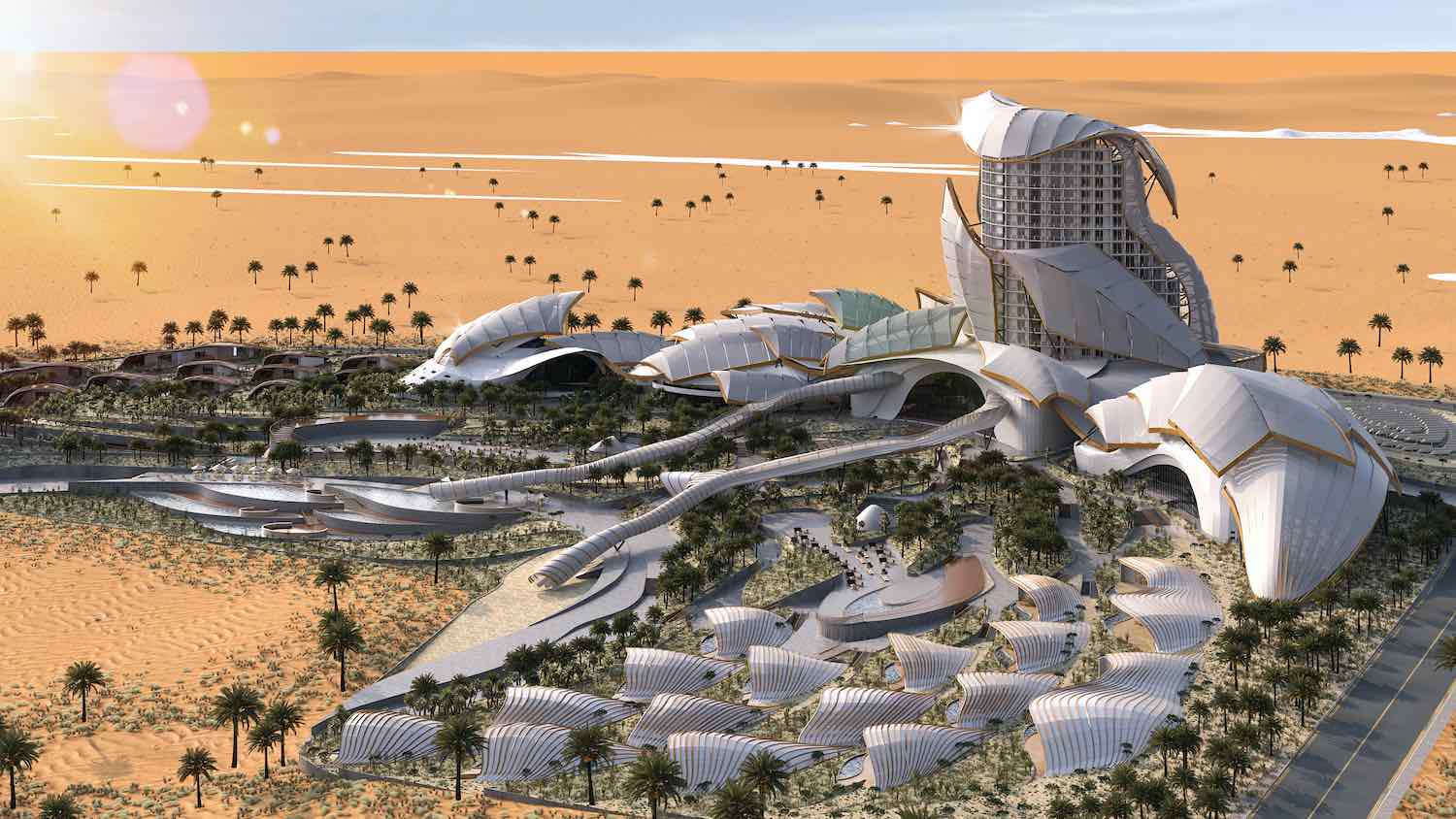Mohammad Qasim Iqbal: This series expertly combines the rules and ideals of the Renaissance with nature's wonderful unpredictability. Similar to my previous explorations, I possess a fascination with the blurred zone, the in-between, and the transitional space. Bearing this in mind, we can identify the two ideas that collide and transition within this series.
Firstly, we have the Renaissance, with its repetition, symmetry, and part-to-whole relationship between the facades, embodying the characteristics of the Renaissance. The use of Renaissance style in this series forms the foundation of the architecture, intertwined with elements of nature. The parts that are clearly pure Renaissance architecture, not intertwined with nature, function as the body of the images. These include arches and clean planes that sporadically appear throughout the series.
Nature represents the second component in this series of blurring, being an appropriate subject to explore due to its proportional relationship to the Renaissance. Additionally, there is a literal element of nature that I wanted to incorporate into this series. It is evident through the depiction of green leaves and brown branches, representing trees and plants.
The magic occurs when these components collide. The architectural elements, such as allegorical sculptures, columns, roofs, and structures, transform into branch-like, organic, and free-flowing forms, while maintaining the aesthetic of the Renaissance sculptor's stone. The ornamentation becomes immensely significant, intriguing, and challenges the status quo. In this series, ornamentation is not merely an extension of beauty but encompasses nature, structure, and is indispensable to the architecture itself.
